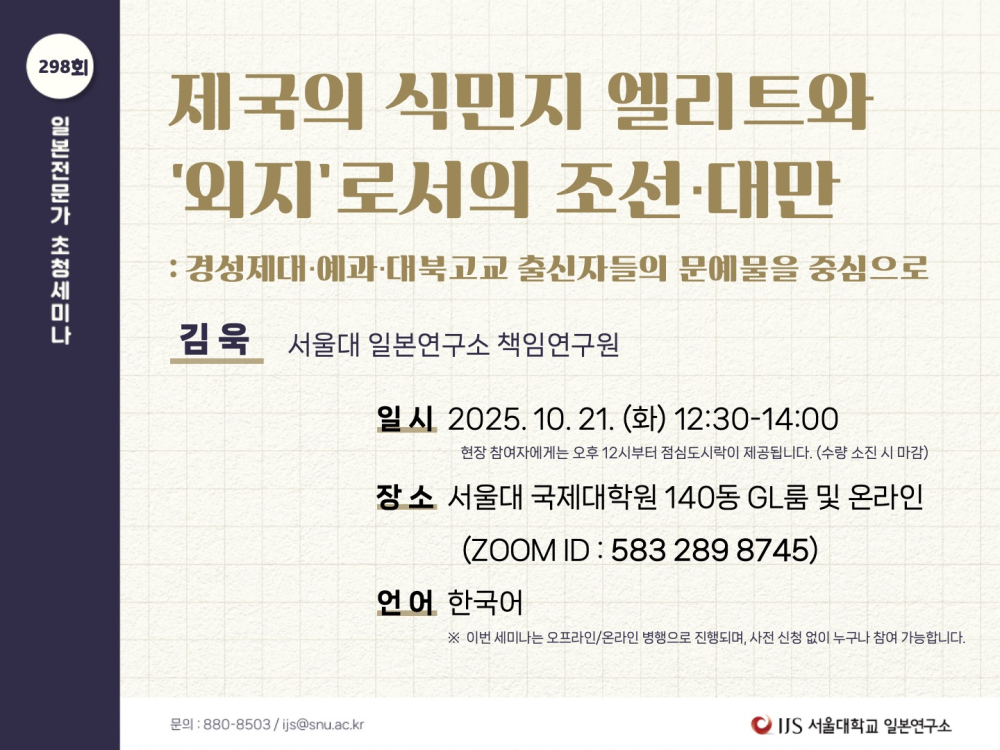
The Institute for Japanese Studies (IJS) has been hosting a series of talks covering Japanese politics, economy, society, culture, and the arts. With experts from Korea, Japan, Europe, and the U.S., the seminars are delivered in multiple languages including Japanese, Korean, and English.
We are pleased to host the 298th lecture as part of the Japan Specialist Seminars, titled “Colonial Elites of the Empire and Korea/Taiwan as the ‘Outer Territories’.”
This seminar will be held in a hybrid format. Anyone interested is welcome to attend without prior registration. Lunch boxes will be provided starting at 12:00 p.m. (Please note that availability may be limited.)
Date: October 21, 2025 (Tuesday) 12:00–14:00 (The lecture will start from 12:30)
Venue: GL Room, SNU GSIS (Bldg. 140) and online via ZOOM
Language: Korean
Lecturer: KIM Wook (Principal Researchers, Institute for Japanese Studies, Seoul National University)
Title: Colonial Elites of the Empire and Korea/Taiwan as the 'Outer Territories': Focusing on Literary Works of Graduates from Keijō Imperial University, its Preparatory Course, and Taihoku Higher School
In the 1920s, imperial higher education institutions such as Keijō Imperial University, its preparatory course, and Taihoku Higher School in colonial Korea and Taiwan were spaces where narratives of friendship and respect coexisted with discrimination and exclusion. As groups of "naisen (內鮮, Japan–Korea)" and "nittai (日臺, Japan–Taiwan)" engineering elites, they were bound together by a shared sense of prestige, yet the hybridity of empire also produced divisions. The Japanese empire sought to integrate them through the elite consciousness of being part of the only imperial university and higher schools in the "outer territories." However, different ways of thinking about the colonizer/colonized and outer territory/colony constantly clashed in literary journals and literary circles. After liberation, these tensions transformed into myriad memories of assimilation’s contradictions, colonial resentment, the colonizer's sense of loss, and the lingering experience of being "outer territory." This talk explores how the personal and collective memories of Korean, Taiwanese, and Japanese colonial elites who studied at these higher education institutions were formed and reshaped over time.
Inquiry: IJS Administration Office (880-8503 / ijs@snu.ac.kr)